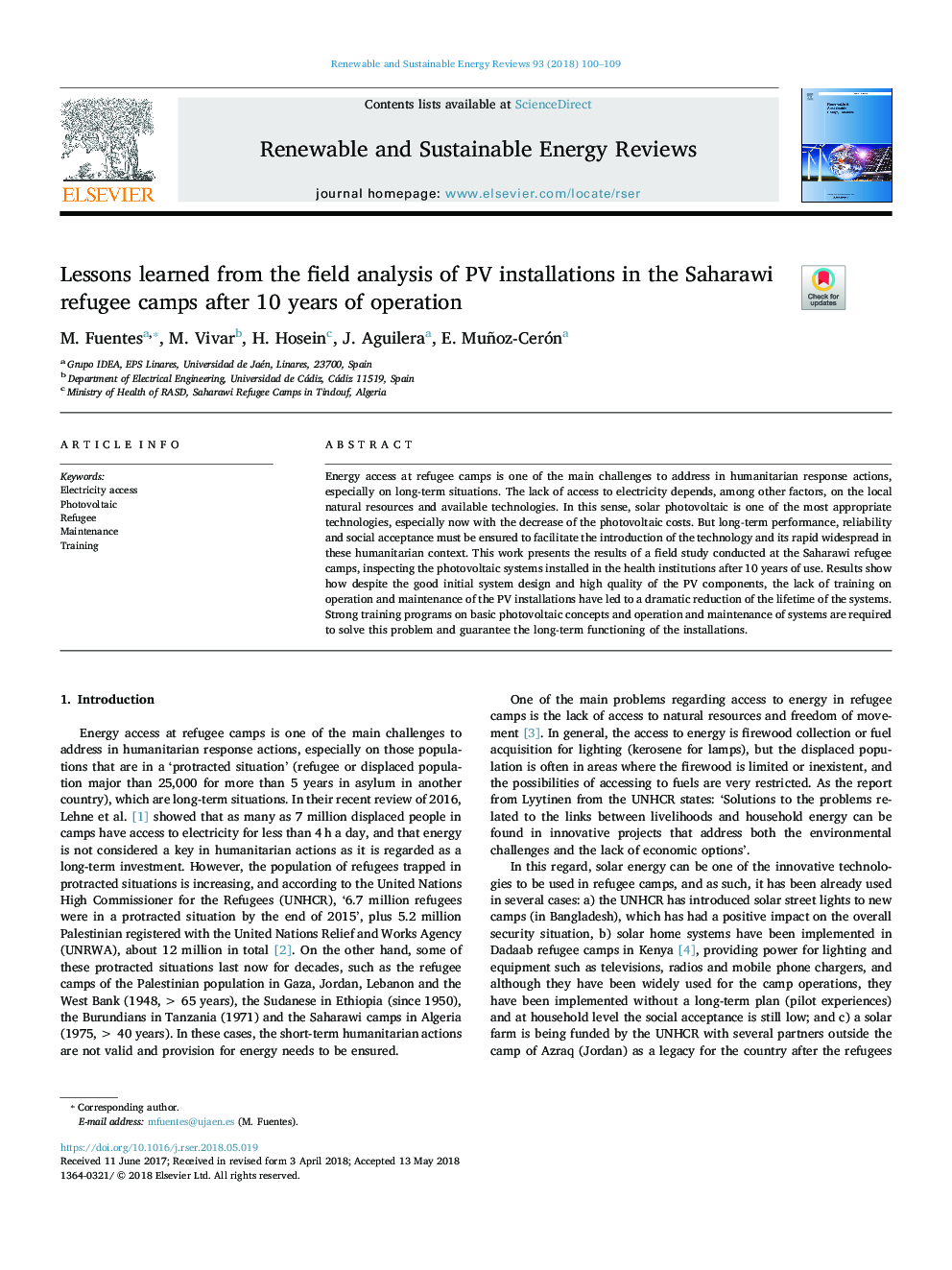| Article ID | Journal | Published Year | Pages | File Type |
|---|---|---|---|---|
| 8110656 | Renewable and Sustainable Energy Reviews | 2018 | 10 Pages |
Abstract
Energy access at refugee camps is one of the main challenges to address in humanitarian response actions, especially on long-term situations. The lack of access to electricity depends, among other factors, on the local natural resources and available technologies. In this sense, solar photovoltaic is one of the most appropriate technologies, especially now with the decrease of the photovoltaic costs. But long-term performance, reliability and social acceptance must be ensured to facilitate the introduction of the technology and its rapid widespread in these humanitarian context. This work presents the results of a field study conducted at the Saharawi refugee camps, inspecting the photovoltaic systems installed in the health institutions after 10 years of use. Results show how despite the good initial system design and high quality of the PV components, the lack of training on operation and maintenance of the PV installations have led to a dramatic reduction of the lifetime of the systems. Strong training programs on basic photovoltaic concepts and operation and maintenance of systems are required to solve this problem and guarantee the long-term functioning of the installations.
Related Topics
Physical Sciences and Engineering
Energy
Renewable Energy, Sustainability and the Environment
Authors
M. Fuentes, M. Vivar, H. Hosein, J. Aguilera, E. Muñoz-Cerón,
